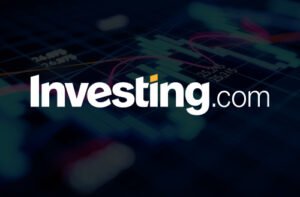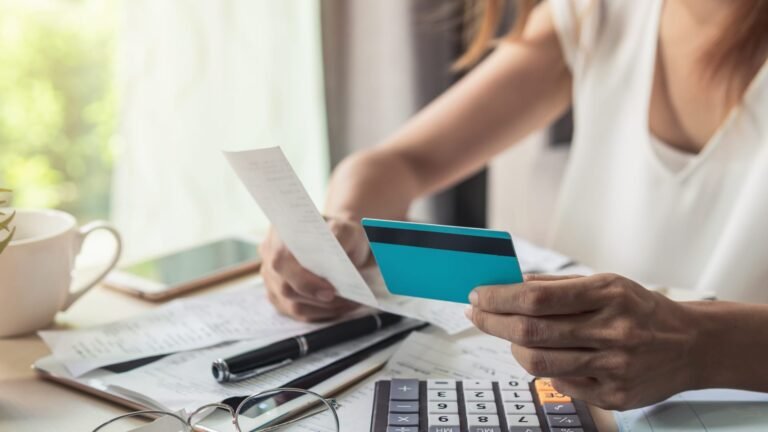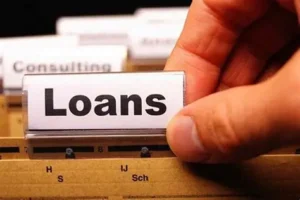Are you struggling to manage multiple debts—credit cards, personal loans, or medical bills? You’re not alone. Millions of people face similar financial stress. That’s where debt consolidation loans come in—a smart, structured way to regain control over your finances. But what is the best debt consolidation loan? What types are available? And how can it benefit you?
In this detailed blog post, we’ll break everything down—step by step.
What Is a Debt Consolidation Loan?
A debt consolidation loan is a type of personal loan used to pay off multiple existing debts. Instead of making several payments to different lenders, you combine (or “consolidate”) your debt into one monthly payment, ideally with a lower interest rate and better terms.
Example:
If you have 3 credit cards with different interest rates (say 22%, 19%, and 25%), a debt consolidation loan at 10% interest can save you money and simplify your payments.
Types of Debt Consolidation Loans
There are several types of loans used for debt consolidation. Each comes with its own benefits and best-use scenarios:
1. Unsecured Personal Loans
- Best for: People with good credit who want fast, collateral-free consolidation
- Pros: No risk to your assets, fixed monthly payments
- Cons: Higher interest rates if your credit score is low
2. Balance Transfer Credit Cards
- Best for: Short-term payoff plans with minimal interest
- Pros: 0% APR promotional periods (often 12–21 months)
- Cons: Requires good to excellent credit; high interest after promo ends
3. Home Equity Loans (HEL) / Home Equity Line of Credit (HELOC)
- Best for: Homeowners with substantial equity
- Pros: Low interest (because it’s secured by your home), large loan amounts
- Cons: Risk of foreclosure if you default
4. Debt Management Plans (DMPs)
- Best for: Those with poor credit or who need help with budgeting
- Pros: Offered by non-profit credit counseling agencies; may reduce interest
- Cons: Not a loan; requires discipline and closing credit accounts
5. 401(k) Loans
- Best for: Emergency use only
- Pros: No credit check
- Cons: Risking your retirement savings; taxes/penalties if unpaid
Benefits of Debt Consolidation Loans
✅ One Monthly Payment
You won’t need to juggle five due dates—just one monthly bill, making budgeting much easier.
✅ Lower Interest Rates
If you have good credit, you can lock in a much lower interest rate than credit cards or payday loans.
✅ Boosts Credit Score (Over Time)
Initially, applying might lower your score slightly. But over time, as you reduce your balances and make timely payments, your credit can improve.
✅ Fixed Repayment Schedule
Know exactly when your debt will be paid off—no surprises.
✅ Reduces Stress
Fewer payments and better terms often reduce the mental load that comes with financial worry.
How to Choose the Best Debt Consolidation Loan
To find the best loan for your situation, follow these steps:
1. Check Your Credit Score
A score of 670 or higher increases your chances of approval and better rates.
2. List All Your Debts
Include balances, minimum payments, and interest rates. This helps you calculate how much you need to borrow.
3. Compare Lenders
Look at:
- Interest rates (APR)
- Loan terms (24–72 months)
- Fees (origination, late, prepayment)
- Reputation (read reviews and check BBB ratings)
4. Use a Loan Calculator
Estimate your monthly payments and how much you could save with consolidation.
5. Prequalify Without Impacting Your Credit
Many lenders allow you to check offers with a soft credit inquiry.
Top Lenders for Debt Consolidation Loans (as of 2024)
Note: These are popular options, but always compare based on your personal financial situation.
| Lender | APR Range | Loan Amount | Credit Requirement |
|---|---|---|---|
| SoFi | 8.99%–25.81% | $5,000–$100,000 | 680+ |
| Upstart | 6.40%–35.99% | $1,000–$50,000 | 600+ |
| Marcus by Goldman Sachs | 6.99%–28.99% | $3,500–$40,000 | 660+ |
| LendingClub | 9.57%–35.99% | $1,000–$40,000 | 600+ |
| Discover Personal Loans | 7.99%–24.99% | $2,500–$35,000 | 660+ |
When Should You Use a Debt Consolidation Loan?
✔️ You’re paying high interest on credit cards
✔️ You can make consistent monthly payments
✔️ You have good to excellent credit
✔️ You want a set end date for your debt
✔️ You’re committed to not racking up more debt
When NOT to Use a Debt Consolidation Loan
- You plan to keep using credit cards while repaying the loan
- Your debt total is too small (you might not qualify or benefit much)
- You’re close to default or bankruptcy
- You have no income or ability to repay even reduced payments
How to Use a Debt Consolidation Loan Properly
🔹 Step 1: Pay off all debts immediately
Use the loan funds to pay off every listed debt. Don’t delay or use the money for anything else.
🔹 Step 2: Set a strict budget
Avoid falling back into debt by tracking your spending and setting financial limits.
🔹 Step 3: Avoid new credit card charges
Put your cards away (some even recommend freezing them—literally).
🔹 Step 4: Automate your new loan payment
Missing payments will hurt your credit and defeat the purpose of consolidation.
🔹 Step 5: Monitor your credit score monthly
Free tools like Credit Karma or your bank’s app help you stay on track.
Frequently Asked Questions (FAQs)
Q: Will debt consolidation hurt my credit?
A: You may see a small dip at first due to the hard inquiry. Over time, it can improve your score by lowering credit utilization and creating a positive payment history.
Q: Can I consolidate debt with bad credit?
A: Yes, but interest rates will be higher. Consider working with a credit counselor or improving your score before applying.
Q: Is a debt consolidation loan the same as debt settlement?
A: No. Debt settlement involves negotiating to pay less than what you owe—often damaging your credit. Debt consolidation pays off your debt in full.
Final Thoughts
The best debt consolidation loan is one that fits your financial goals, saves you money on interest, and simplifies your life. Whether you’re consolidating $5,000 or $50,000, doing your research and staying disciplined can set you on the path to becoming debt-free.
Remember:
- Know your numbers
- Shop around
- Stick to a repayment plan
- Don’t repeat old habits
Read other:
- Online Installment Loans With No Credit Check in Mississippi: The Complete Guide
- Can You Get a Business Loan with Bad Personal Credit in New Jersey?
- Are Bank Loans Cheaper Than Car Finance in Virginia? 2025
- How to Get a Business Loan for a Small Business in California: A Detailed Guide
- How to Make Sure Your Student Loans Never Leave Your Credit Report — The Ultimate Opposite Guide










